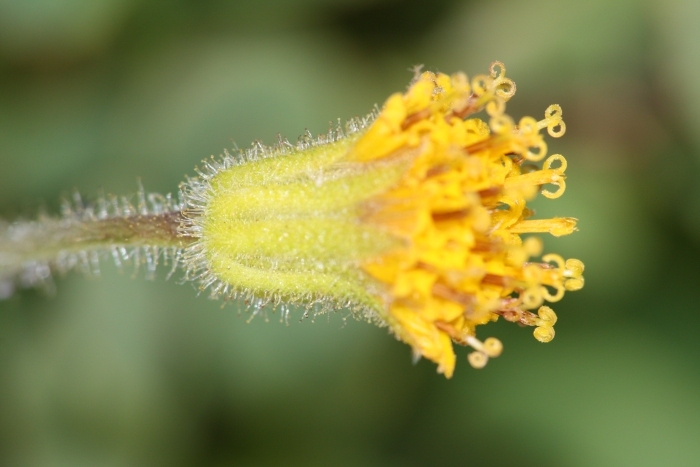Parry’s Arnica
(Arnica parryi)
Parry’s Arnica (Arnica parryi)
/
/

Walter Siegmund (talk)
CC BY-SA 3.0
Image By:
Walter Siegmund (talk)
Recorded By:
Copyright:
CC BY-SA 3.0
Copyright Notice:
Photo by: Walter Siegmund (talk) | License Type: CC BY-SA 3.0 | License URL: https://creativecommons.org/licenses/by-sa/3.0 | Uploader: Wsiegmund | Publisher: Wikimedia Commons | Title: Arnica_parryi_6234.JPG | Notes: |



























Estimated Native Range
Summary
Arnica parryi, commonly known as Parry’s arnica or nodding arnica, is a rhizomatous perennial herb that is native to montane meadows and subalpine zones in the Pacific Northwest. It typically grows to heights between 10 and 60 centimeters and is characterized by its single unbranched stem. The inflorescence consists of one to several daisylike flower heads that nod when in bud and become erect upon blooming. Each head features a center packed with yellow disc florets surrounded by yellow ray florets, which are particularly showy in the spring season.
Parry’s arnica is valued for its bright yellow flowers and is often used in wildflower gardens, naturalized areas, and for restoration projects. It is also utilized for its purported medicinal properties, particularly in homeopathic remedies for bruising and muscle pain. This plant prefers full sun but can tolerate part shade, and it requires medium amounts of water and well-drained soil. While generally low-maintenance, it can be susceptible to fungal diseases if conditions are too wet. Gardeners should be aware that all parts of the plant are toxic if ingested and can cause skin irritation on contact.CC BY-SA 4.0
Parry’s arnica is valued for its bright yellow flowers and is often used in wildflower gardens, naturalized areas, and for restoration projects. It is also utilized for its purported medicinal properties, particularly in homeopathic remedies for bruising and muscle pain. This plant prefers full sun but can tolerate part shade, and it requires medium amounts of water and well-drained soil. While generally low-maintenance, it can be susceptible to fungal diseases if conditions are too wet. Gardeners should be aware that all parts of the plant are toxic if ingested and can cause skin irritation on contact.CC BY-SA 4.0
Plant Description
- Plant Type: Herb
- Height: 1-1.5 feet
- Width: 1-1.5 feet
- Growth Rate: Moderate
- Flower Color: Yellow
- Flowering Season: Spring, Summer, Fall
- Leaf Retention: Deciduous
Growth Requirements
- Sun: Full Sun, Part Shade
- Water: Medium
- Drainage: Medium
Common Uses
Bee Garden, Butterfly Garden, Edible*Disclaimer: Easyscape's listed plant edibility is for informational use. Always verify the safety and proper identification of any plant before consumption., Low Maintenance
Natural Habitat
native to montane meadows and subalpine zones in the Pacific Northwest
Other Names
Common Names: Nodding Arnica, Sonne’s Arnica, Arnica De Parry
Scientific Names: , Arnica angustifolia, Arnica parryi, Arnica parryi subsp. genuina, Arnica parryi subsp. sonnei, Arnica parryi var. parryi, Arnica parryi subsp. parryi, Arnica sonnei, Arnica eradiata, Arnica angustifolia var. eradiata
GBIF Accepted Name: Arnica parryi A.Gray